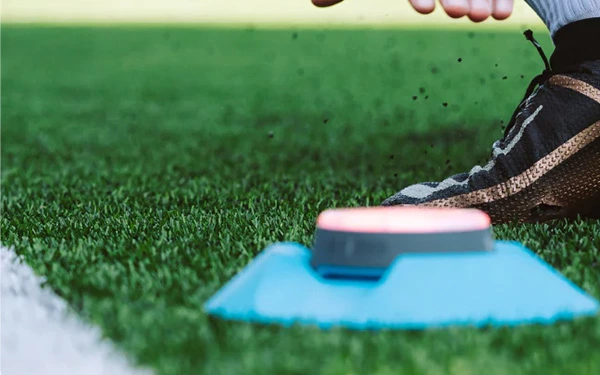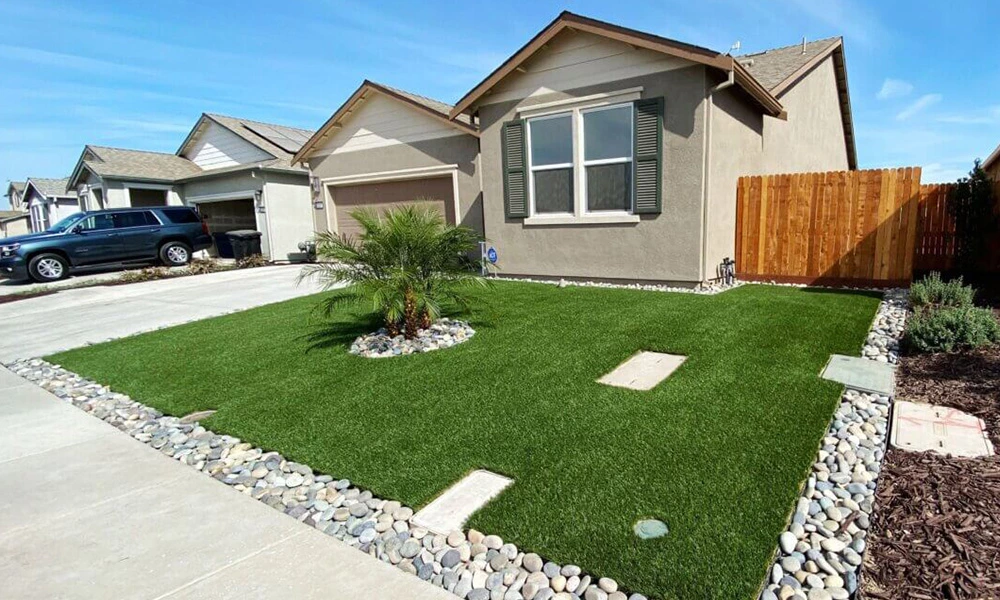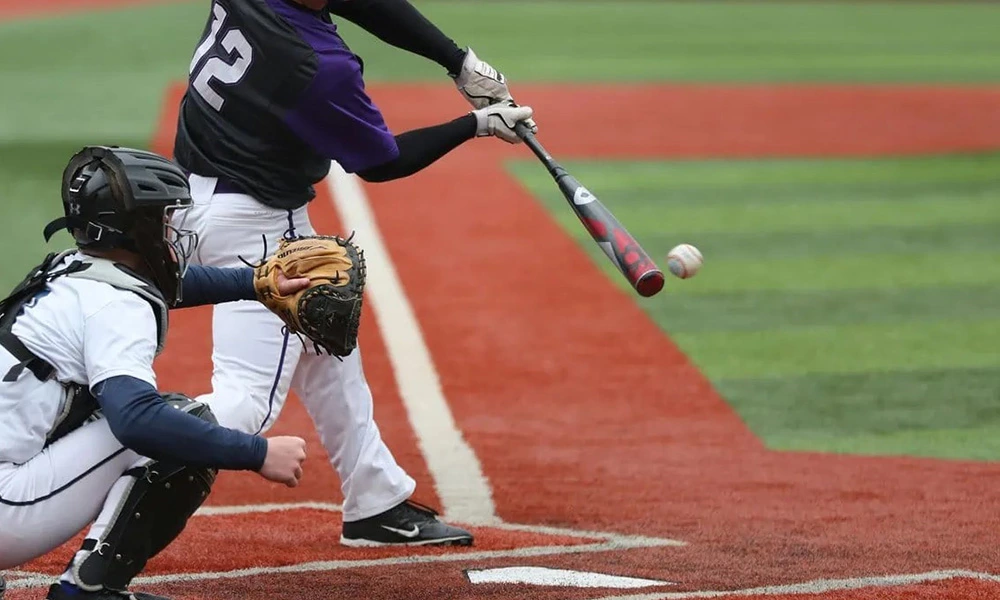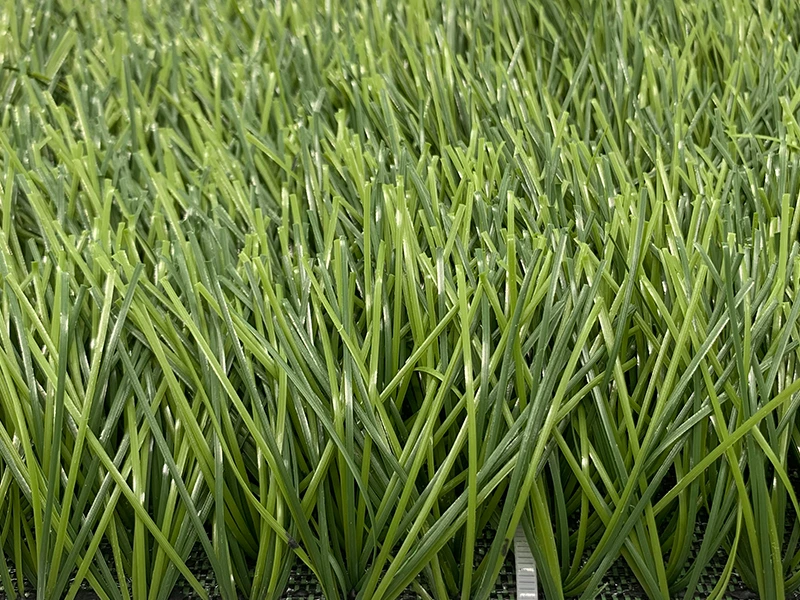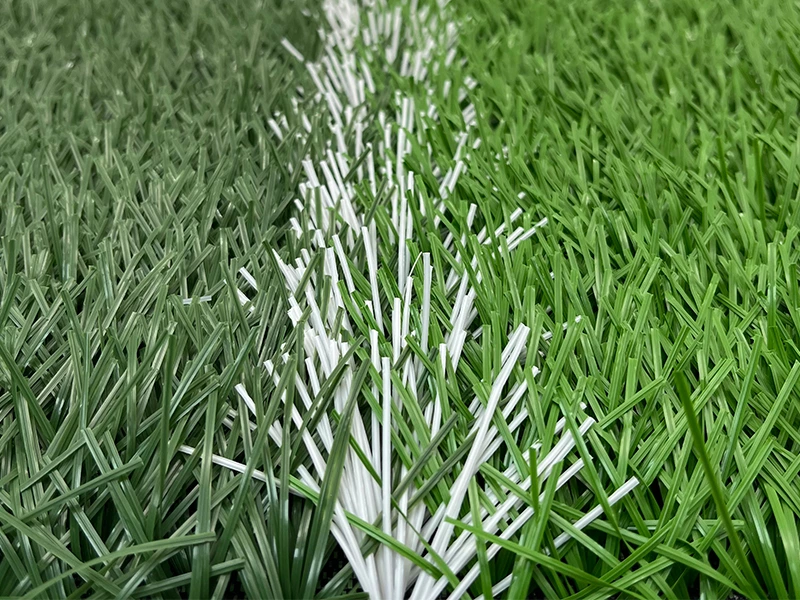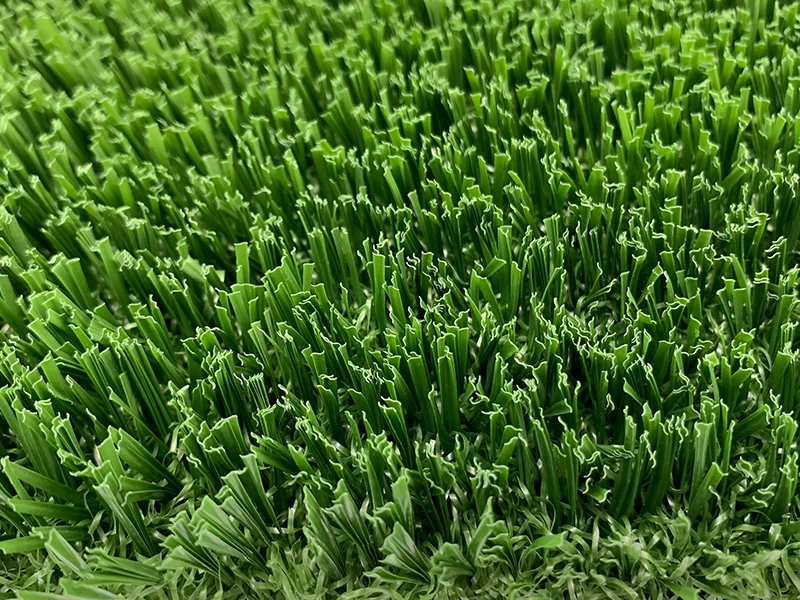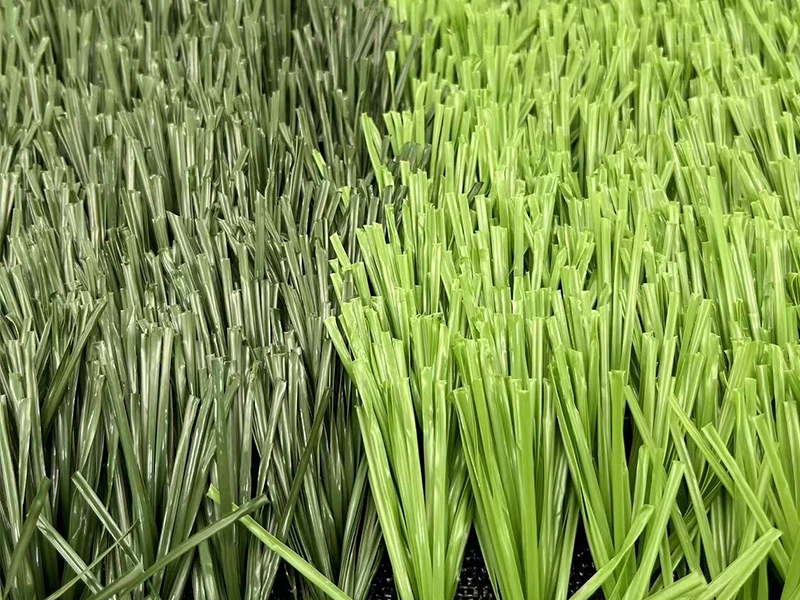Advantages of artificial turf in sports fields
New technology is used to extend the life of grass
Artificial turf is increasingly popular in modern sports stadiums, and its advantages are significant, especially in terms of maintenance costs, environmental protection, playability and safety. Although the initial cost of artificial turf is higher, its long-term maintenance costs are much lower. Compared with natural turf, artificial turf does not require regular repairs, vacuuming, refilling or even watering, which greatly reduces maintenance costs. In addition, the UNIGRASS factory uses the latest production technology, which further extends the service life of artificial turf, making it an affordable choice.
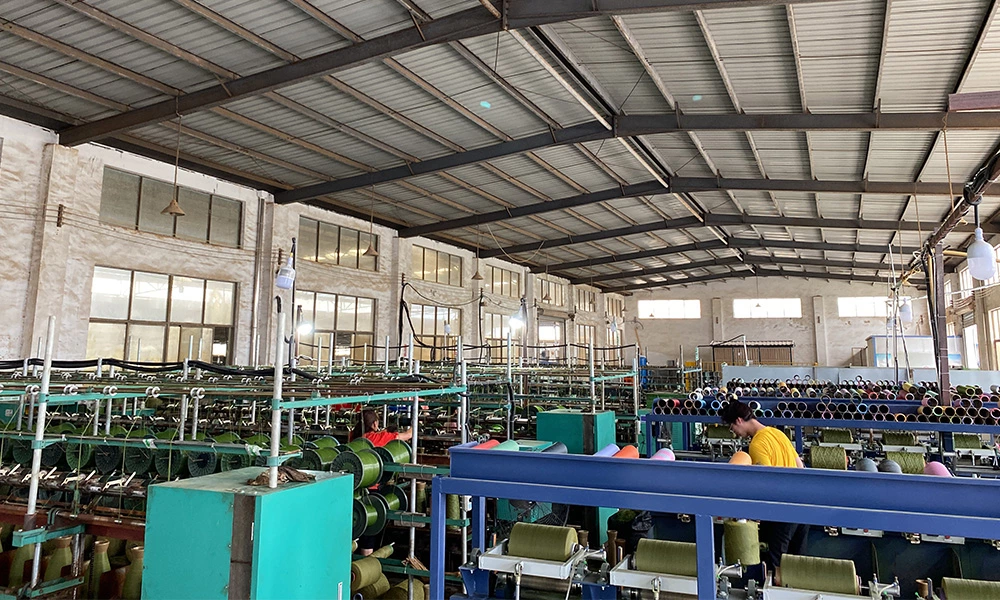
Stable athletic performance, suitable for professional competitions
Professional sports fields have strict requirements for surface smoothness, cushioning, and friction coefficient. Artificial turf, through technical design, precisely replaces and even improves natural turf:
Performance is unaffected by the environment: Natural turf is significantly affected by weather (muddy on rainy days, too hard on sunny days), seasons (withering in winter, rapid growth in summer), and sunlight (patchy patches of baldness), which can lead to an unstable athletic experience and even increase the risk of injury. Artificial turf utilizes standardized grass and underlayment structures, ensuring a uniform and smooth surface regardless of weather, heat or cold. Parameters such as friction coefficient and elastic modulus remain stable.
Excellent cushioning and protection: High-quality artificial sports turf, combined with a specialized shock-absorbing underlay (such as a rubber granule infill), effectively absorbs impact, reducing the risk of injury to athletes' joints (knees and ankles) and muscles.
Optimized ball control and sports experience: By adjusting the grass length, density, and filler particle type, artificial turf can simulate the "ball speed, rolling trajectory, and bounce height" of natural turf, and is even more controllable in certain scenarios (for example, the grass on a football field has good uprightness, which reduces the irregular bounce of the ball).
Allergen-Free Environment
Grass fields are often muddy, contain grass clippings, and are prone to allergens. Athletes bring mud indoors, soiling their jerseys and kicking up dust during dry periods. Natural grass can also contain allergens like pollen, affecting many players and causing itchy eyes, sneezing, and other discomfort during training and matches.
Artificial turf eliminates these problems. It's free of pollen, mud, and grass stains. Players stay clean, and equipment remains in better condition. Spectators and staff also benefit from less dust and fewer allergens around the field. Artificial turf fields are particularly beneficial for venues serving children, people with allergies, or asthma sufferers. Artificial turf provides a more comfortable and inclusive playing environment.
Avoids environmental pollution
Artificial turf also has significant advantages in environmental protection. It does not require the use of pesticides and fertilizers, which not only reduces the use of chemicals but also avoids potential pollution to the environment. For those who care about the ecological environment, this is undoubtedly an important consideration.
Artificial turf is more playable
In terms of sports performance, artificial turf is more durable and more playable than natural turf. Its sturdy structure allows for more frequent use, even when the field is scarce, and youth sports organizations can get more practice space. Because the surface of artificial turf is flat, competitions and training are not easily affected by weather, and rain in spring and autumn usually does not lead to cancellation of competitions. In contrast, muddy natural grass fields may require season-long repairs after a fierce game.
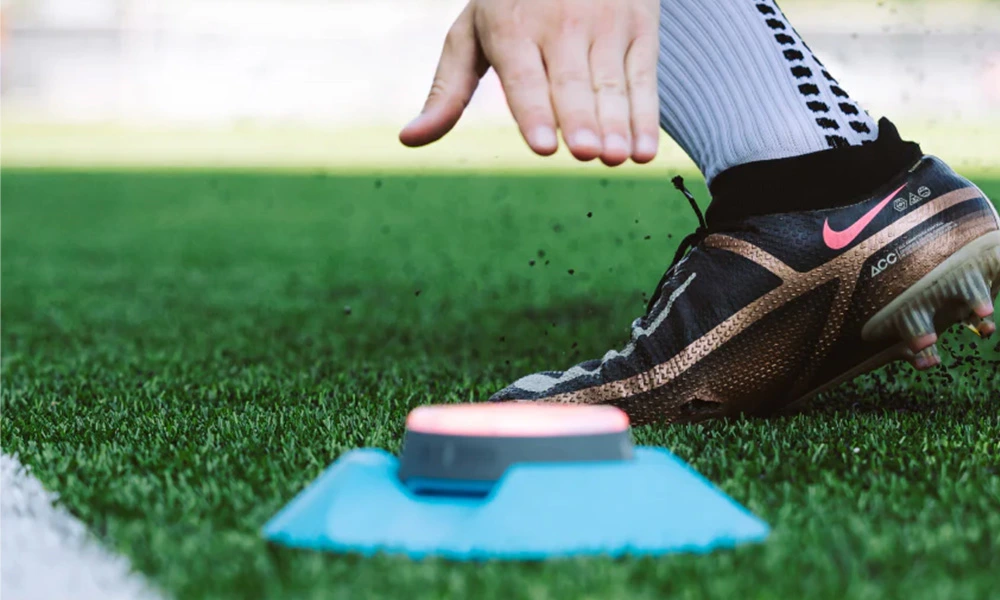
Significantly reduces athlete injuries
Artificial turf can also significantly reduce athlete injuries. Its durability and flat surface means fewer sprained ankles or slips during play. Grass can easily turn into large, slippery patches of mud after rough play, increasing the risk of injury to athletes.
Advantages of saving water resources
Artificial turf also has the advantage of saving water. During the growing season, an ordinary grass sports field requires about 50,000 gallons of water per week, while artificial turf requires no water at all. This is particularly important today when water resources are increasingly scarce.
Eliminate high maintenance costs
The annual maintenance costs of natural turf include:
Water costs (up to 1-2 tons per square meter annually);
Labor costs (mowing, reseeding, pest control, and professional sites require a dedicated gardener);
Consumables (fertilizer, herbicide, seeds);
Equipment depreciation (mowers, sprinklers, etc.).
These costs add up to an average annual cost of 50-100 yuan per square meter. Artificial turf, on the other hand, only costs 5-10 yuan per square meter annually (primarily for cleaning and granule replenishment), saving over 60% in total costs over a 10-year period.
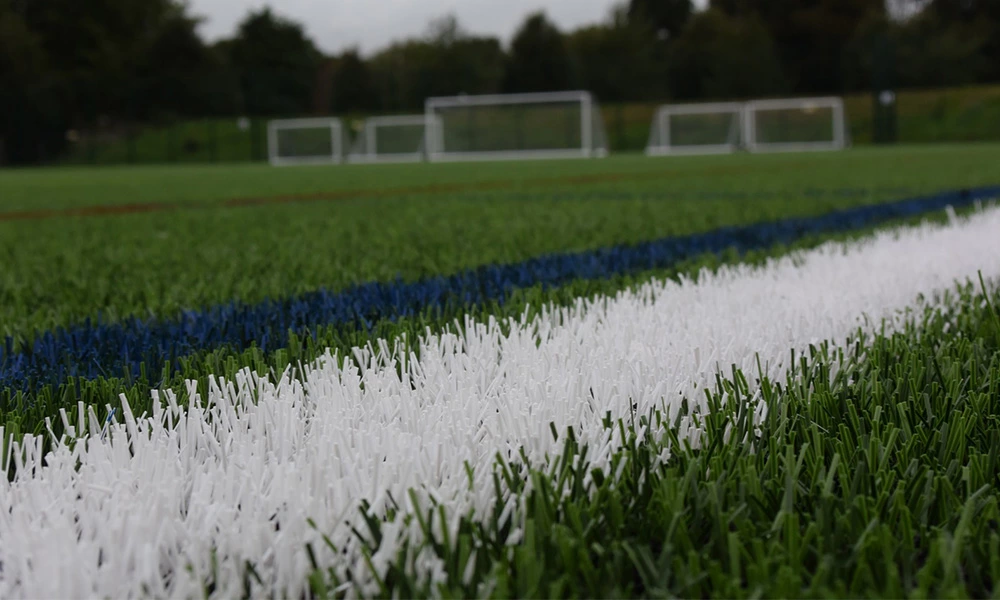
Why has artificial turf become mainstream in sports fields?
For sports fields that are frequently used and require high performance stability (such as professional competition venues, school playgrounds, and community sports centers), artificial turf has become a preferred choice due to its advantages such as wear resistance, low maintenance, stable performance, and long-term economic benefits. Its value is particularly evident in settings with extreme climates, water shortages, or high demand for field reuse. With technological advancements, the athletic experience and environmental friendliness of artificial turf continue to improve. In the future, it will further replace natural turf and become a core solution for sports surfaces.
Common Concerns about Artificial Turf
While the advantages of artificial turf are obvious, it's important to understand a few common concerns when discussing it.
Heat Accumulation Issues
Artificial turf can become hotter than natural grass under direct sunlight, which can be uncomfortable for athletes. However, many modern artificial turf systems are designed with light-colored grass fibers, cooling infill materials, and heat-reflective technology to reduce surface temperature. In most cases, a gentle rinse with a hose in hot weather will quickly cool it down.
Cleaning and Hygiene Issues
Artificial turf does not require mowing but does require light cleaning. Cleaning may include combing the surface to keep the grass fibers upright, removing debris, and rinsing to remove dust or stains. Areas with high-frequency use or where pets are allowed may require occasional disinfection, but maintenance is still significantly less than with natural grass.
Environmental Concerns
Some early artificial turf systems used materials that sparked debate about recyclability or toxicity. Today's products have made significant progress in safety, sustainability, and end-of-life recycling. Many products use organic infill materials such as cork or coconut shells.

